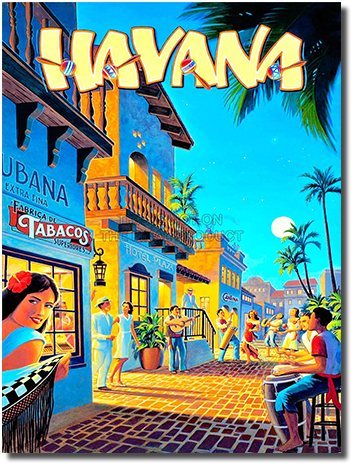
Cuba
Baseball’s Free Spirit

This is the story of how the small island of Cuba looms large in the imagination of baseball enthusiasts throughout the world. It is a story of passion, power, and intrigue under the warm Caribbean sun. Here sports, politics and nightlife intertwine as we chronicle the highest levels of achievement and the darkest despair of disappointment. It takes us to a time when the Havana Casino Orchestra emerged from local hotels and wafted in the winds bringing the rhythms of island culture all the way to New York City when they recorded El Manisero, The Peanut Vendor. This was Cuba in the 1920’s and 30’s, a crossroads of culture where American, Latin, Mexican and Caribbean athletes collided for money and glory.
For over 100 years some of the most talented international baseball stars met in an integrated setting where baseball was king and a home runs earned accolades and extra money. While baseball in the United States remained strictly segregated, to be invited to play in Cuba was an honor of the highest distinction and where the name on your uniform was far more important than the color of your skin.
Every winter, the best ballplayers arrived on the docks of Havana to play in the most colorful and competitive league. These men were the giants of the game. Here major league baseball’s Ty Cobb would compete with Negro League’s Henry 'Pops' Lloyd or Cuban great Martin DiHigo. This was Caribbean baseball’s golden era that later spawned a generation of stars who won fame in the major leagues.
Harlem numbers king Alex Pompez, a Cuban-American racketeer, loved baseball. With his illegal loot, he brought together the best Cuban ballplayers to tour the island and later constructed his own New York City stadium, Dykman Oval. These were ambitious years that solidified his relationship with the ballplayers based on trust and mutual respect.
Later, he was pursued by New York’s special prosecutor and future Presidential candidate Thomas Dewey, who was determined to breakup the illegal lottery businesses run by gangsters who associated with politicians. Pompez was tipped off and fled the country with the help of ballplayers who set up an underground railroad to convey him to safety in Mexico. Eventually, he was brought back to the United States but averted jail by testifying for the prosecution. With baseball integration he rose to become the top Latin American scout for the New York Giants and helped bring numerous Cuban ballplayers to major league stardom. (Read more...)